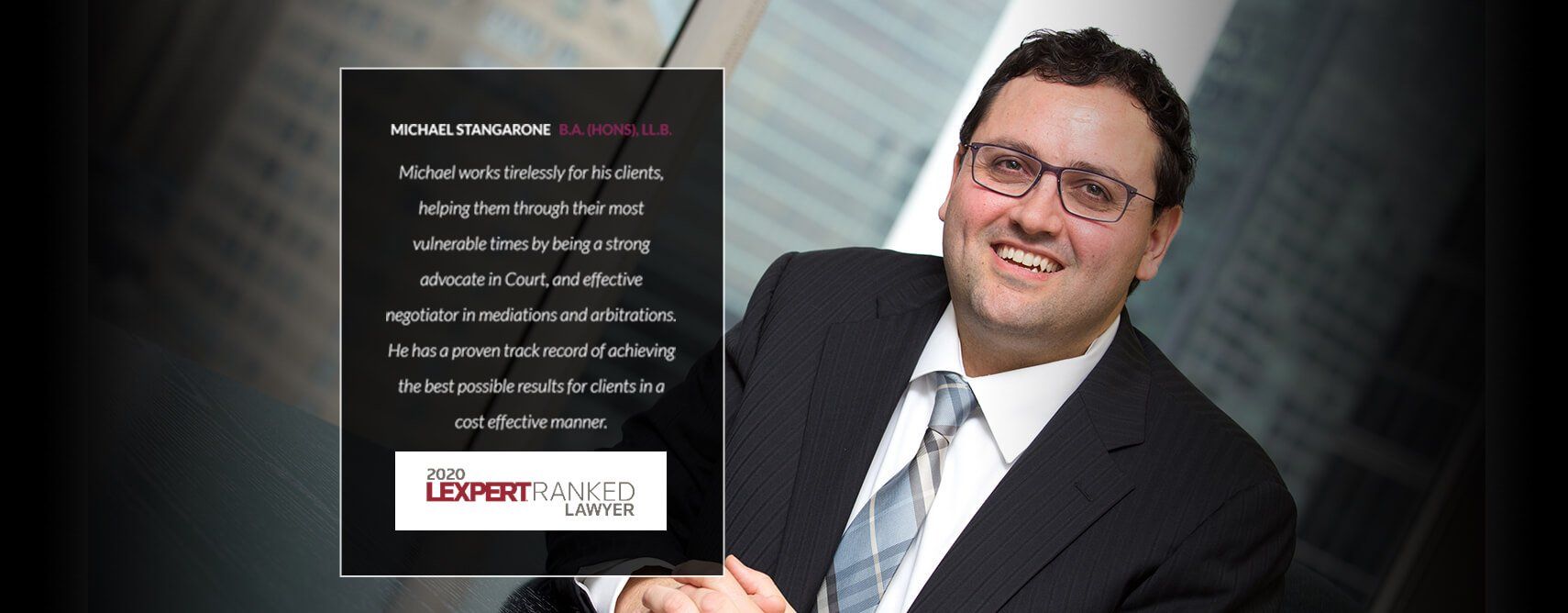Gary Joseph | Jan 2022
This article was originally published by The Lawyer’s Daily (www.thelawyersdaily.ca), part of LexisNexis Canada Inc.
As a teenager (with clear ambition to be a “trial lawyer”), I constantly watched police crime shows on the family black and white TV. I loved the action and the inevitable capture of the bad guys. The capture always led to police providing the Miranda warning: “You have the right to remain silent, anything that you say will be taken down and can be used against you in a court of law,” to the prisoner. I later learned that the Miranda warning evolved from a 1966 decision of the U.S. Supreme Court in a case called Miranda v. Ariz. 384 US 436 (1966). This warning is based upon the Sixth Amendment to the U.S. Constitution and the Fifth Amendment right to remain silent. For many years I believed the same rights existed in Canada.
Family lawyers are very familiar with the frequent intersection of family and criminal law. Unfortunately, many relationship breakdowns lead to criminal charges. When family law counsel experience this intersection, I find that there is often confusion as to rights that exist for the accused to remain “silent” within family law proceedings while criminal charges make their way through the criminal justice process. In Canada there is indeed a right to protection from self-incrimination but it differs significantly from that right in the United States.
Family lawyers need to have a working knowledge of s. 5(1) of the
Canada Evidence Act, s. 9(1) of the
Ontario Evidence Act
and s. 13 of the
Canadian Charter of Rights and Freedoms.
These provisions, as explained by various cases, provide the framework for the Canadian protection from self-incrimination. The Charter provides that a witness who testifies in any proceeding has the right not to have any incriminating evidence used to incriminate the witness in any other proceedings (except in prosecution for perjury or for the giving of contradictory evidence). Both evidence Acts indicate that a witness is not excused from answering an incriminating question or one that tends to expose the witness to liability in civil proceedings. In my search for case law on this topic, the clearest distillation of these related provisions comes from the Ontario Court of Appeal in the case of Catalyst Fund General Partner v. Hollinger Inc. [2005] O.J. No. 4666 at para 4. I quote as follows:
"In both Canada and the United States, the right to protection from self incrimination is an important right that is safeguarded. The difference between how that right is protected in Canada and the United States lies in the heart of this appeal. In Canada a person has the right not to have any incriminating evidence that the person was compelled to give in one proceeding used against him or her in another proceeding except in a prosecution for perjury or for the giving of contradictory evidence. Thus, in Canada, a witness cannot refuse to answer a question on the grounds of self-incrimination, but receives full evidentiary immunity in return. In the United States, a witness can claim the protection of the Fifth Amendment and refuse to answer an incriminating question. Once the answer is given, however, there is no protection."
Thus, both countries offer protection against self-incrimination but in different ways. No one in Canada can “plead the Fifth.” Believe me, I saw a witness do just that during a family law trial many years ago. Once the presiding justice was able to remove the smile from her face, she gently reminded the witness that no such right existed. I thereafter finished my devastating cross-examination of that witness (well to be honest, not so devastating but I tend to remember most of my past cross examinations as devastating).
So, some takeaways from this article: As family lawyers we must appreciate the protections afforded witnesses against self-incrimination and, just as importantly, we must direct young and aspiring lawyers away from American TV shows. We need
more Canadian crime shows!
Gary S. Joseph is the managing partner at MacDonald & Partners LLP.
This article by Gary Joseph was recently featured on The Lawyer's Daily.




